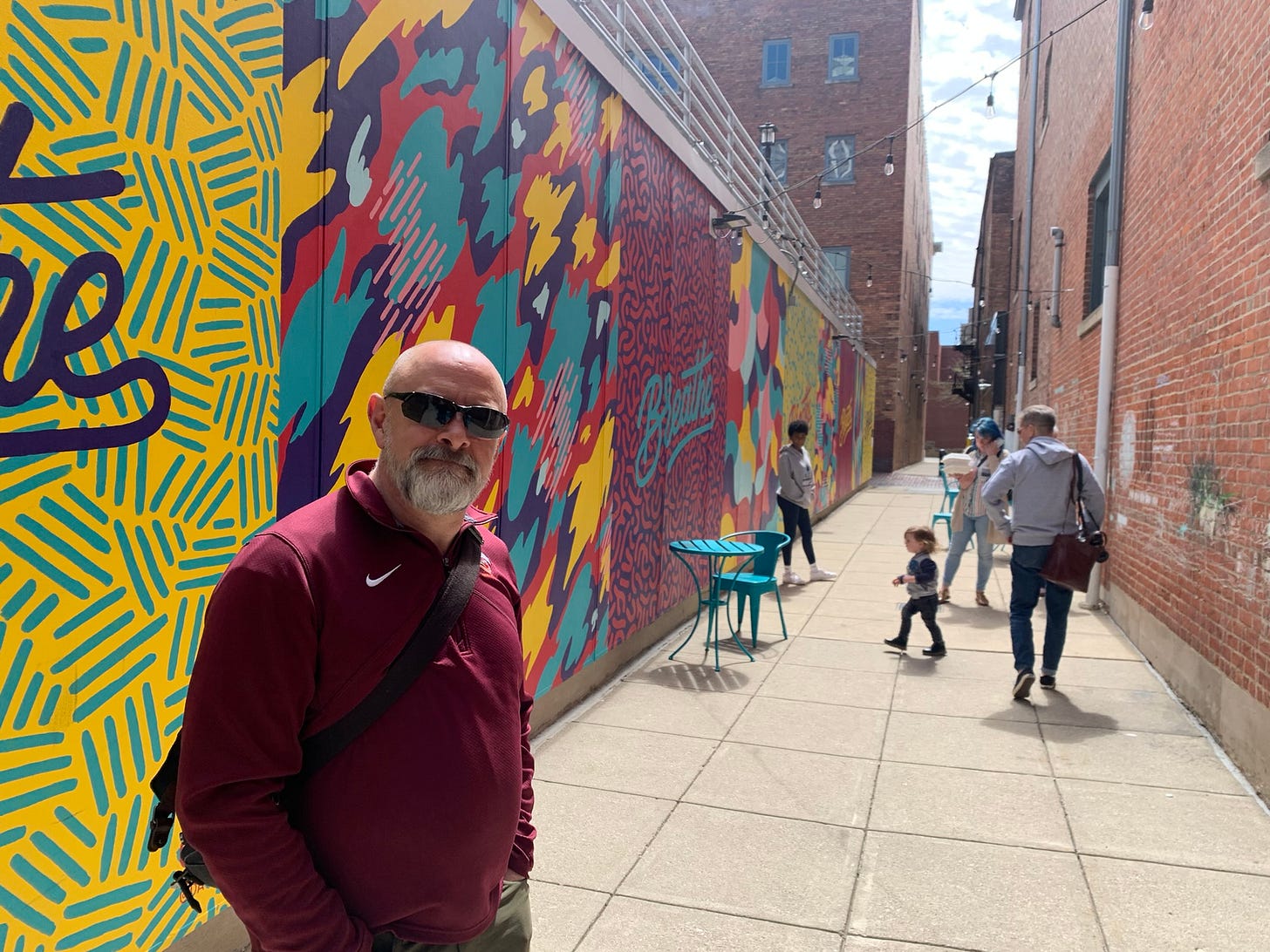082 - Thinking about who and what helps.
some research from Canada points to the power of friends and paying attention.
Welcome back! (or welcome!)
This is my friend Robbie. And assorted members of our families. In an alley. In Fort Wayne. He understands grief, and being helpful.
He understands the research I’m talking about here.
About taking informed care of each other.
In 2023, the Canadian Grief Alliance invited people to share about their grief. Nearly 4,000 people responded to a survey. They discovered grief came from several kinds of losses, though 93% identified the loss of a loved one, 53% identified anticipation of someone's death, and 16% identified the loss of a pregnancy. Other causes of grief include loss of a pet, the end of a relationship, loss of physical or mental health, loss of a dream or goal.
People reported a lot of grief.
Half of the people who responded to the survey indicated that they didn't feel adequately supported in their grief. More than half felt their grief wasn't recognized. A quarter of people didn't seek support, including people who felt like they should deal with it on their own, felt uncomfortable sharing, or assumed their grief wouldn't be understood.
When they asked what would be helpful, 83% said that being asked about their loss is helpful.
And 93% said being asked how they could be best supported would be helpful.
The most helpful support comes from family and friends and other informal sources. Healthcare systems, employers, and helplines are often used, but not as helpful as people expected.
So if we help friends and family know how to recognize grief and support people in that grief, perhaps by asking about the loss and asking how to help, we have a statistical chance of being helpful.
Unfortunately, we can't assume that friends and family will understand how to help or have the energy for helping.
Picture, for example, a memorial service for grandma. Gathered are her husband of 49 years and 10 months, their 3 children and current spouses, eight grandchildren, and two great-grandchildren. And a dog. But the obituary lists four children, two child-in-laws and ten grandchildren. Some of these names are in the section labeled "preceded in death." This family is acquainted with grief.
It's likely that if this group of people took the survey, the results would be consistent with the percentages we see elsewhere. That half of these people aren't going to feel adequately supported, that half of these people aren't going to feel that their grief is recognized.
Because every person in that room lost a different person, had a different story with her. And the ways that generations talk about loss has changed during her 75 years of life, during their 50 years of marriage.
· Messages have been "Be strong." "Don't cry."
· Grandma had favorites and didn't understand everyone's choices.
· Grandpa's memory has been slipping and he needs a lot of help.
· One of the grandchildren died a couple months back, and no one is sure what to say.
· And grandma had faith, but it was as idiosyncratic as it was intense.
The confusion about grief in this one family is significant. And one packet of grief resources, one funeral sermon, quarterly mailings from hospice to a couple people aren't going to help this family be helpful to each other or to others.
What would help? Because this is a made-up story, what might be done before this moment so that understandings of grief are seeded into this family group?
· talking everywhere about new models.
· Talking to grandma's church about grief and God.
· Having a conversation in a rotary club meeting about how employers can be supportive.
· a support group for bereaved parents of children, like Sad Dad's Club.
· Widow/widower groups, like the one described in The Group.
· A public health campaign encouraging people to talk about people who have died. "You can say their name"
This is what I and others mean when we talked about grief literacy. As I describe it, grief literacy is having words, concepts, skills, processes, and resources as a person, family, and community to be helpful to people in time of loss, particularly death. And that’s what we’re building here.
+++
And it’s time for a break.
We’re taking a couple weeks of vacation soon, and I realized that I need to bracket that with a little more space. And so, because this is my newsletter (though it’s for you), I get to take time out. I’ll be back here in about a month.
In the meantime, take good care of each other, and yourselves.
Thanks for the ways you take care of me.
Jon





